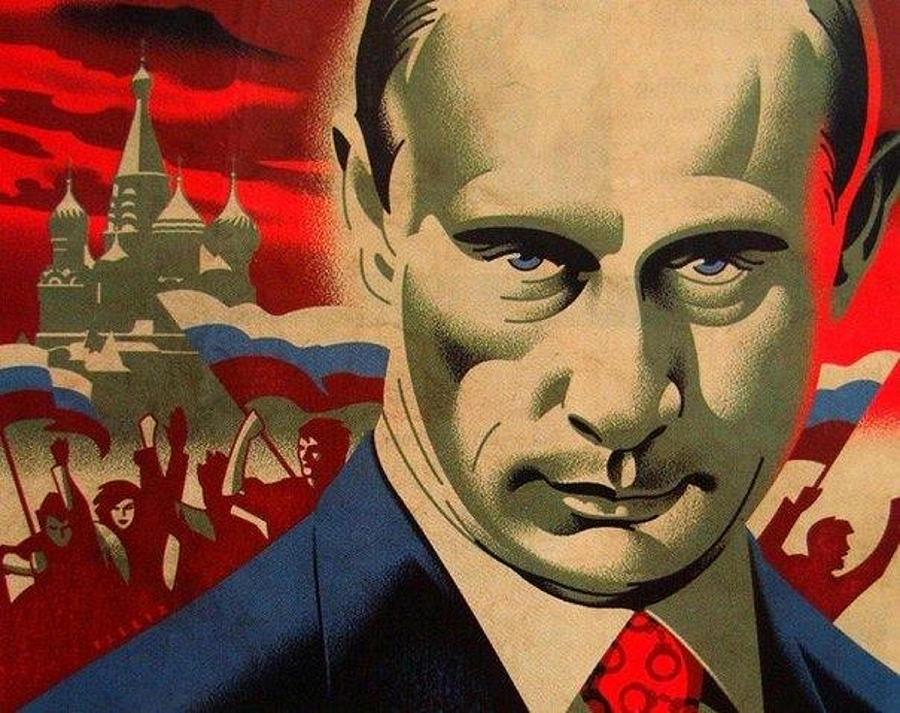
In the captivating era of November 1983, a significant cosmic event occurred as Pluto ventured into the enigmatic realm of Scorpio. Amidst this profound astrological movement, Pluto’s orbit seemed intricately woven to align its arrival in Scorpio with its utmost momentum. This cosmic rendezvous beckoned forth a generation, brave and unyielding, to confront life’s most profound and somber truths. Pluto, the harbinger of rapid and profound transformation, found solace within the domain of Scorpio, a natural sanctuary for metamorphosis. Governed by catastrophic eruptions and the inescapable realities of existence, this celestial union resonated with resonant echoes of “fate” and “destiny.” The convergence of forces during this time gave rise to amplified concerns of widespread famine, infectious ailments, and the ominous specter of nuclear warfare. Such was the potent cocktail birthed by this cosmic interplay, reminiscent of the tumultuous era when Pluto was discovered in 1930, amidst the dawn of the atomic age. Under this powerful transit, Pluto held sway over a domain laden with symbolism: radioactive elements, the art of healing and regeneration, the enigmatic realm of nuclear energy, lethal viruses, and the ominous specter of mass destruction. It embodied the mastery of power, the intricate interplay of shared resources, the profound mergers that shape our lives, the labyrinth of human sexuality, the relentless quest for survival, the embodiment of wealth and finance, the inescapable clutches of mortality, and the haunting shadow of decay. For within the cycle of life, every ending heralds a new beginning, where dormant seeds of possibility await germination.
Astrologer Jeff Green eloquently articulates that the passage of Pluto through Scorpio serves to heighten the very essence of our existence. It invokes a profound sense of intensity, albeit uncomfortable, for it is within this crucible that the collective consciousness thrives, evolves, and endures. From the crucible of intensity emerges the impetus for growth, the catalyst for evolution, and the sustenance for our collective survival. Throughout this movement of of Pluto’s transit into Scorpio, we glean invaluable lessons. We learn that within the depths of darkness lies the potential for profound transformation. We witness the interconnectedness of life’s most daunting challenges and the resilience of the human spirit in the face of adversity. We discover that in the wake of destruction, new opportunities for rebirth and rejuvenation emerge. And above all, we come to embrace the undeniable truth that the collective’s evolution rests upon embracing the intensity of our existence, even when it feels disquieting.
So, as we reflect upon the epoch of Pluto in Scorpio, let us honor the indomitable spirit of those who faced life’s darkest realities head-on. May we embrace the transformative power that resides within us, accepting the inevitability of change and finding solace in the potential for new beginnings. In the crucible of intensity, we find the seeds of growth, the essence of evolution, and the foundation for our collective survival.
“Pluto in Scorpio lay ahead. One of the greatest struggles in the history of the planet faced humanity. Astrological knowledge—understood and used widely— could have provided a blueprint for responsible action and public education. Ignored and misunderstood, Pluto in Scorpio promised terror, resource wars, class wars, mass deaths, climate catastrophe and possibly mass nuclear contamination from sexual plagues, weapons or other sources—the horrors of all time cultimating in a twelve year period.” By A.T Mann –The Future of Astrology
Pluto, with its relentless pursuit of truth, delves deep into the very core of our being, unearthing the emotions that arise when we have outgrown our circumstances. In the ancient tale of Persephone, we find a profound symbolization of both the descent into the underworld, represented by Pluto, and the subsequent emergence of newfound strength and resilience. As the virgin goddess frolicked in the fields, the earth split open beneath her, and in rode Pluto, his chariot ablaze with darkness, drawn by ebony steeds. He snatched the goddess away, subjecting her to a harrowing violation within the depths of Hades.
The aftermath of Persephone’s abduction echoed through the realm of mortals. Demeter, consumed by grief for the loss of her daughter, plunged into a profound despair that hindered the growth of crops and the fruitfulness of trees. Across continents, life withered and froze, while countless souls endured the anguish of hunger. For seven long years, famine prevailed, casting its devastating shadow over the world. It was a time of barrenness, a testament to the relentless grip of despair. But within this darkness, seeds of transformation lay dormant, waiting for their chance to bloom.
Eventually, Persephone was granted temporary reprieve, ascending to the upper world for a portion of the year. During her sojourn, life reawakened, vibrant and full of promise. The ebb and flow of her presence mirrored the cyclical nature of existence, teaching us the invaluable lesson that from death springs forth new life. This profound cosmic dance unfolded during Pluto’s transit through Scorpio, leaving indelible imprints upon our collective consciousness. From 1983 to 1995, Ethiopia endured the torment of famine, as relentless drought rendered crops futile and claimed countless lives. The scarcity of grain and the mistrust between governments hindered efficient distribution, exacerbating the suffering of the people. In response, organizations like Oxfam rallied, making unprecedented contributions in a bid to shame Western governments into action. The plight of starving Ethiopians resonated across the globe, prompting an outpouring of individual donations. In a remarkable display of compassion, the Western world united, raising over $100 million in a mere two months, with the British people alone contributing $5 million within three days. Through initiatives like Band Aid’s “Do They Know It’s Christmas?” and the monumental Live Aid concerts, the tide of support surged, bringing renewed hope to those in need.
In the midst of this era, another insidious force emerged—the AIDS virus. First identified by scientists in the United States and France on April 23, 1984, it plunged humanity into a state of profound vulnerability. Scorpio’s dominion over the intricate intertwining of human sexuality and the purifying force of illness came to the fore. The consequences of unguarded intimacy became starkly apparent, as pleasure and mortality intertwined in a perilous dance. The experience underscored Scorpio’s reverence for enduring partnerships and illuminated the predatory instincts that define the Scorpion’s essence.
Tragedy struck once more, as a toxic cloud of gas seeped from the UNION Carbide pesticide facility in Bhopal, India, on December 3, 1984. This catastrophic industrial disaster stands among the most devastating in history. The poisonous vapors swiftly permeated the city, inflicting severe harm upon anyone unfortunate enough to come into contact with it. In the immediate aftermath, thousands lost their lives, and the toll continued to rise, leaving an estimated 20,000 individuals dead and countless others permanently disabled.
These harrowing events, borne out of Pluto’s tumultuous journey through Scorpio, carry profound psychological lessons. They remind us of the fragility of existence, the interconnected the interconnectedness of our actions, and the resilience of the human spirit. They teach us to confront the depths of darkness within ourselves and society, to harness our collective compassion and mobilize in the face of adversity. They call upon us to recognize the transformative power that lies dormant within, waiting to be awakened, even amidst the most despairing of circumstances.
As we reflect upon these poignant chapters of our history, may we honor the spirits of those who endured, and may we emerge with newfound empathy, strength, and the wisdom to foster a world where such darkness holds no dominion.
The Chernobyl disaster of 1986 was the worst nuclear power plant accident in history in terms of cost and casualties, and is one of only two classified as a level 7 event (the maximum classification) on the International Nuclear Event Scale (the other being the Fukushima Daiichi nuclear disaster in 2011). The battle to contain the contamination and avert a greater catastrophe ultimately involved over 500,000 workers and cost an estimated 18 billion rubles (18 billion $USD). During the accident itself, 31 people died, and long-term effects such as cancers and deformities are still being accounted for. Wikipedia
Intriguingly, during the time of the catastrophic accident, an astute astrologer observed a celestial event that held profound psychological significance. The day preceding the calamity, a lunar eclipse unfolded at 4 degrees Taurus-Scorpio, with Pluto positioned directly opposite, casting its enigmatic shadow upon the heavens.
It was on the fateful day of October 19, 1987, that the global financial markets plunged into an abyss of uncertainty. In a swift and devastating blow, the value of assets plummeted, resulting in a staggering loss of around £300 billion. The tremors reverberated throughout the world, leaving no economy untouched. The chairman of the New York Stock Exchange, taken aback by the magnitude of the collapse, remarked, “This is the closest I’ve ever witnessed to a financial meltdown.” Meanwhile, President Reagan sought to instill a sense of reassurance, expressing confidence in the resilience of the U.S. economy.
The crash arrived on the heels of a period marked by rapid growth and exuberance in what was dubbed a “bull” market. During this phase, characterized by hostile takeovers and relentless company mergers, optimism ran high. However, the sudden plunge on that ill-fated “Black Monday” marked the most drastic drop in market history. Yet, amidst the chaos and uncertainty, a valuable lesson emerged—one of resilience and the cyclical nature of economic cycles. Contrary to the dire predictions of a prolonged depression, the world gradually regained its footing. Interest rates began to decline, and investors cautiously returned to the market, cautiously seeking new opportunities. It became evident that the crash, while a monumental setback, did not herald the end. Rather, it became a pivotal moment, a turning point that challenged the resilience of individuals and economies alike.
The predictions for Pluto in future signs were equally amusing. Pluto in Scorpio, which occured from 1983 to 1995, was expected to promise “progress” and “mass healing”. Remembering the nuclear catastrophe of Chernobyl’, Russia in 1986 and the onset of AIDS, perhaps the expression “mass killing” is more suitable. By Paul Mahler Dam














